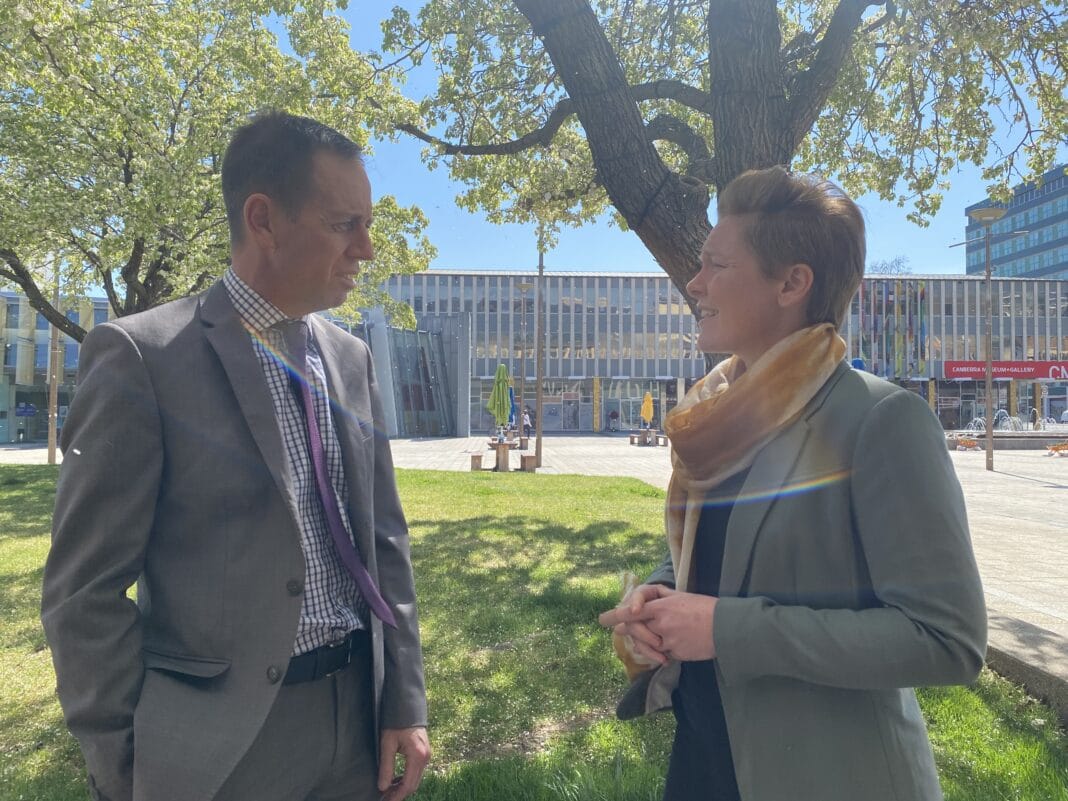The ACT Intermediary Program, introduced a year ago, has been a leap forward in criminal investigation, police say.
Two intermediaries – trained in speech, pathology, social work, psychology, and child protection – have helped witnesses with communication or learning difficulties provide evidence of sexual abuse, family violence, and murder to the police and courts.
Run by the ACT Human Rights Commission, the intermediary program began in January 2020. It follows the Royal Commission into Institutional Responses to Child Sexual Abuse’s recommendation that state and territory governments should establish intermediary schemes similar to those in the UK to help prosecution witnesses with communication difficulties in child sexual abuse cases.
Since it was established, the intermediary scheme has helped more than 150 vulnerable witnesses with language delays, mental health, learning disabilities, and other communication difficulties, ranging from four-year-old children still learning to speak and reason, to 92-year-olds struggling with dementia.
Similar schemes were introduced to NSW in 2016, and to Victoria in 2017. Tasmania started an intermediary scheme last week, while Queensland will begin one in July.
“An intermediary can truly transform a criminal justice process,” ACT Attorney-General Shane Rattenbury said. “Their presence can make the difference between a case that doesn’t proceed and one that results in conviction, or a traumatised witness and one that feels heard.
“The intermediary program is helping to ensure that some of our most vulnerable have equal access to justice, and that the trauma of being interviewed or being in court can be minimised.”
Just under two-thirds of matters intermediaries have assisted with have been sexual assault, the bulk of these with children and young people, said Heidi Yates, Victims of Crime Commissioner at the ACT Human Rights Commission.
“Predators consistently target the very young or the vulnerable, believing they won’t be able to report what has happened,” Ms Yates said.
“With the help of a witness intermediary, even a very young child, or those with language / cognitive delays, can explain what happened to them or what they witnessed.”
Although the scheme’s primary focus is sexual assault and other types of violent crime, Detective Superintendent Scott Moller (in charge of criminal investigations in the ACT) believes intermediaries can be used in most investigations, such as homicide, armed robberies, and housebreaking.
He said the scheme bridges the communication gap between witnesses and the court, allowing the police to put the best evidence before a judge.
Intermediaries are impartial officers of the court, assistant director Laura Cilesio said; they are not involved with the evidence, but facilitate communication. On call 24/7, they may, for instance, assess a child’s understanding of prepositions, figurative language, or ability to refute incorrect evidence.
Ms Cilesio had seen children frightened by police interviews or court, but the intermediary builds rapport, making the child feel at ease. Police have told her children as young as four or five pay attention in interviews for longer than they would have in the past, thanks to the strategies intermediaries use to alleviate stress and anxiety, and maintain focus.
Ms Yates agreed. “When they are in the formal interview, they can speak their truth, they can tell their story, and that evidence can be considered.”
Intermediary Sarah Cocco said every day can look very different: driving between police stations to advise on young witnesses or adults with disability; conducting court assessments to recommend about adjustments a witness might need to testify in court; or presenting information sessions about the intermediary program. “It can be very diverse, and it’s always very interesting. I’m very privileged to do what I do.”
Clare Leaney, CEO of the institutional abuse advocacy service In Good Faith, commended the government’s use of witness intermediaries, and hoped other Australian states and territories would follow. She noted, however, that in civil trials self-represented defendants can directly question their alleged victims: abusers can cross-examine their victims.
“Without specific protections for these vulnerable witnesses, survivors are unable to access justice on an equal playing field,” Ms Leaney said. “There is an urgent need to redress this injustice, and make sure that there is true equality for all before the law… “There is still much work to be done in making it safe for all to speak.”
For more news:



